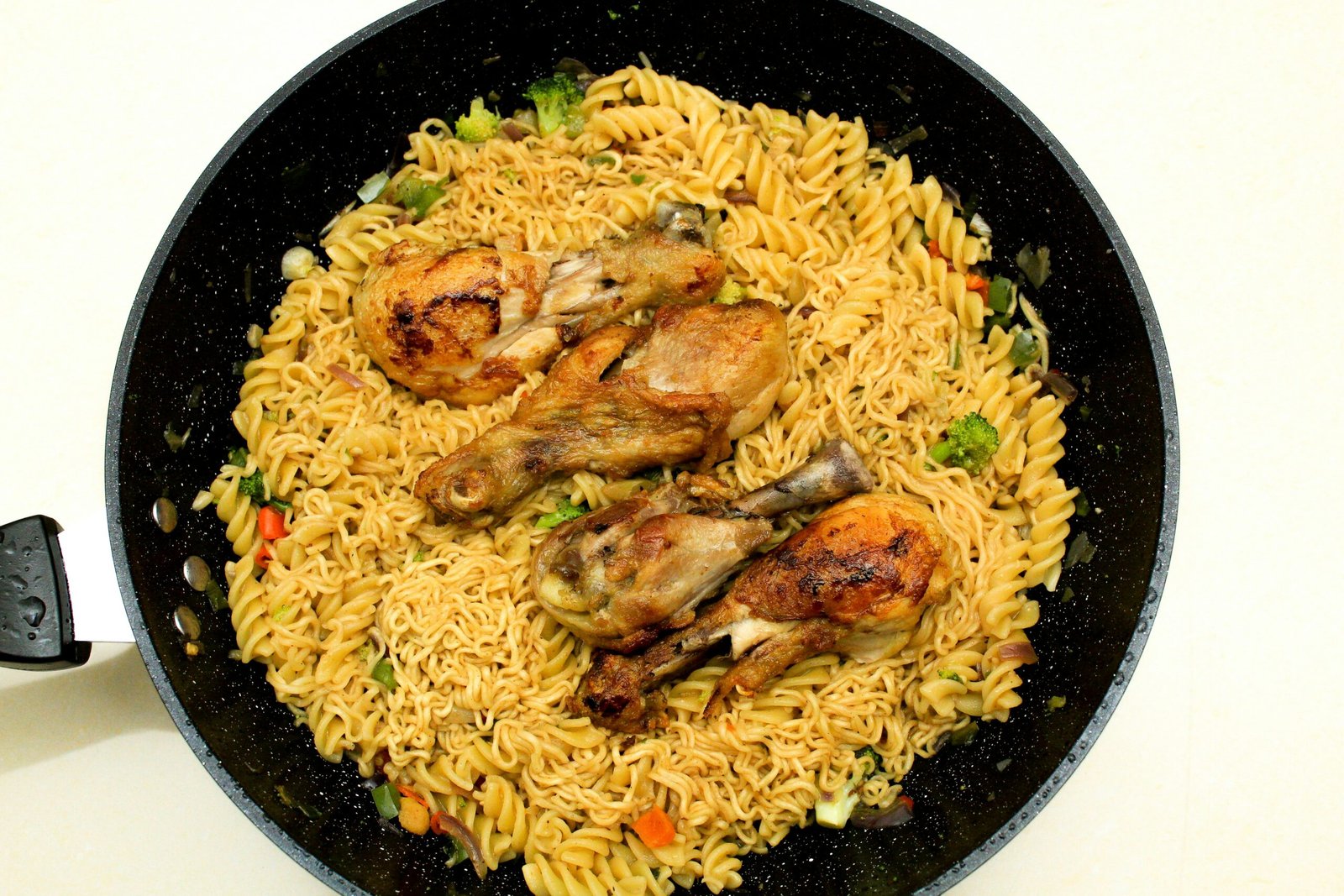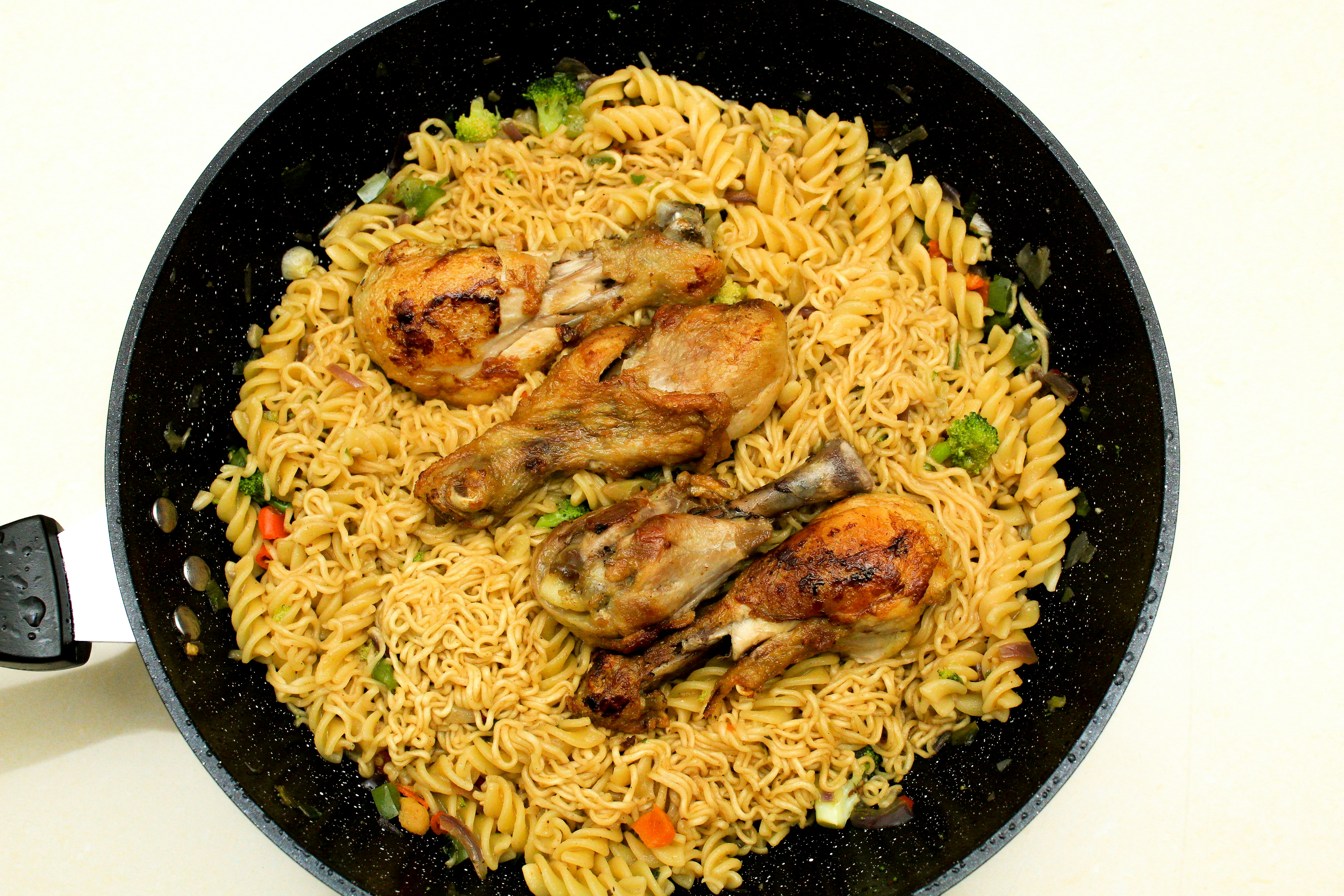
The Importance of Quick Dinner Recipes
In today’s fast-paced environment, the challenge of preparing nutritious and satisfying dinners is increasingly prevalent among individuals and families. Busy schedules, lengthy work hours, and various commitments often leave little room for elaborate meal preparation. Consequently, having quick dinner recipes readily available becomes imperative for maintaining a balanced lifestyle. Quick dinner recipes serve as essential tools, allowing individuals to whip up healthy meals in minimal time while ensuring they do not compromise on nutritional quality.
By incorporating quick recipes into their cooking repertoire, families can enjoy better mealtime experiences. Preparing and sharing a meal can foster connection among family members, and having the option to do so in a short time frame alleviates the pressure associated with nighttime cooking. Furthermore, quick dinner recipes can help prevent reliance on takeout or pre-packaged meals, which are often less nutritious and more expensive. Instead of facing the kitchen with a sense of dread and overwhelming options, having a few go-to recipes that can be made in 15 minutes or less simplifies the cooking process tremendously.
Additionally, quick dinner recipes contribute significantly to reducing stress levels in the kitchen. Knowing a selection of easy-to-prepare meals means that individuals can plan their evenings more efficiently, leading to an overall sense of accomplishment at the end of a long day. Furthermore, these recipes enable creativity and variety in weekly meals, allowing families to explore diverse cuisines without the time commitment usually required. Overall, the ability to prepare satisfying dinners quickly not only saves time but also enhances family dynamics by encouraging regular mealtimes together, thereby promoting overall well-being.
Essential Ingredients for Quick Meals
Preparing quick and easy meals requires a well-stocked kitchen filled with essential ingredients that cater to diverse recipes. For busy individuals, having a solid foundation of pantry and refrigerator staples is paramount. These ingredients not only expedite the meal preparation process but also ensure nutritious and flavorful dishes can be whipped up in a matter of minutes.
Proteins play a crucial role in meal versatility. Canned beans, such as black beans or chickpeas, are fantastic options as they can be used in salads, soups, or grain bowls. Rotisserie chicken is another convenient choice, offering a quick source of protein that can be added to wraps, pasta dishes, or served alongside a fresh salad. These ingredients are not only time-saving but also affordable, making them practical for anyone with a bustling schedule.
In addition to proteins, grains serve as a filling base for many meals. Options like quinoa and pasta can be prepared quickly and used in various recipes, from hearty grain salads to comforting pasta dishes. Having a few different types of grains on hand allows for greater creativity in the kitchen, enabling the preparation of diverse meals throughout the week.
Moreover, vegetables are essential for adding both flavor and nutrition to quick meals. Keeping frozen or pre-chopped vegetables ensures that individuals can easily incorporate healthy ingredients without the need for extensive prep work. These vegetables can be stir-fried, sautéed, or steamed, making them incredibly versatile companions for grains and proteins.
Lastly, meal prepping is a vital practice for anyone seeking to save time in the kitchen. Regularly preparing ingredients in advance and keeping them on hand allows busy individuals to construct meals with minimal effort. By selecting versatile ingredients that can be incorporated into various dishes, one can enjoy delicious, healthy meals while adhering to a busy lifestyle.
15-Minute Dinner Recipes to Try Tonight
For those evenings when time is of the essence, these 15-minute dinner recipes provide both speed and flavor. Whether you follow a vegetarian lifestyle, require gluten-free options, or are seeking protein-packed meals, this selection has you covered. Each recipe is designed to be both simple and satisfying.
One option is a quick vegetable stir-fry. This dish is not only colorful but also rich in nutrients. For the stir-fry, you will need a mix of your favorite vegetables such as bell peppers, broccoli, and snap peas, along with tofu or shrimp, depending on your dietary preference. Begin by heating a tablespoon of oil in a skillet, adding the protein, and cooking until golden brown. Then, introduce the vegetables and a splash of soy sauce, cooking for an additional few minutes until they are tender but still crisp. Serve this balanced meal over pre-cooked rice or noodles for a complete dinner.
Another delightful choice is a lemon garlic pasta. Start by boiling your pasta of choice—spaghetti or linguine works well. While the pasta cooks, heat olive oil in a pan, add minced garlic, and sauté until fragrant. Once the pasta is cooked, drain it and toss it in the pan, adding freshly squeezed lemon juice and zest. For a creamier texture, include a dollop of cream cheese or a sprinkle of Parmesan cheese. This dish is versatile and can be easily customized with vegetables, chicken, or seafood.
Finally, consider a refreshing quinoa salad. Combine cooked quinoa with cherry tomatoes, cucumbers, parsley, and feta cheese. Drizzle with olive oil and lemon juice, mixing until well combined. This no-cook recipe is nutritious and can be prepared in minutes. Each of these recipes can be adjusted to suit individual tastes, ensuring a personalized dinner experience every time.
Tips for Streamlining Dinner Preparation
For busy individuals, preparing dinner can often feel like an overwhelming task. However, by implementing some practical strategies, the dinner-making process can be significantly streamlined, allowing for quick and easy meal solutions. One effective approach is batch cooking. By preparing larger quantities of a dish and storing portions for later use, you can cut down on cooking time during the week. For example, cooking a large batch of chili or soup can yield multiple meals that simply need reheating. This not only saves time but also ensures that convenient and nutritious meals are readily available.
Another strategy is to focus on one-pot meals. These dishes typically require less cleanup and can be made with a variety of ingredients, allowing for a flexible menu that can adapt to whatever you have on hand. By minimizing the number of pots and pans used, you also reduce the overall preparation and cooking time, making dinner more manageable. Moreover, simplifying ingredient lists can make shopping more efficient. Prioritizing recipes that use similar or overlapping ingredients can minimize the time spent at the grocery store and reduce food waste.
Planning meals in advance is also critical. Creating a weekly dinner schedule can help eliminate the stress of last-minute decision-making. By dedicating some time each week to plan, you can ensure a balanced diet and avoid the temptation of takeout on busier days. Additionally, involving family members in the meal preparation process fosters a collaborative approach. Tasks such as chopping vegetables or setting the table can be easily delegated, turning dinner prep into a shared activity. Not only does this lighten the workload, but it also creates an opportunity for family bonding. Adopting these techniques can significantly enhance the dinner experience, making it efficient even in the hustle and bustle of daily life.

